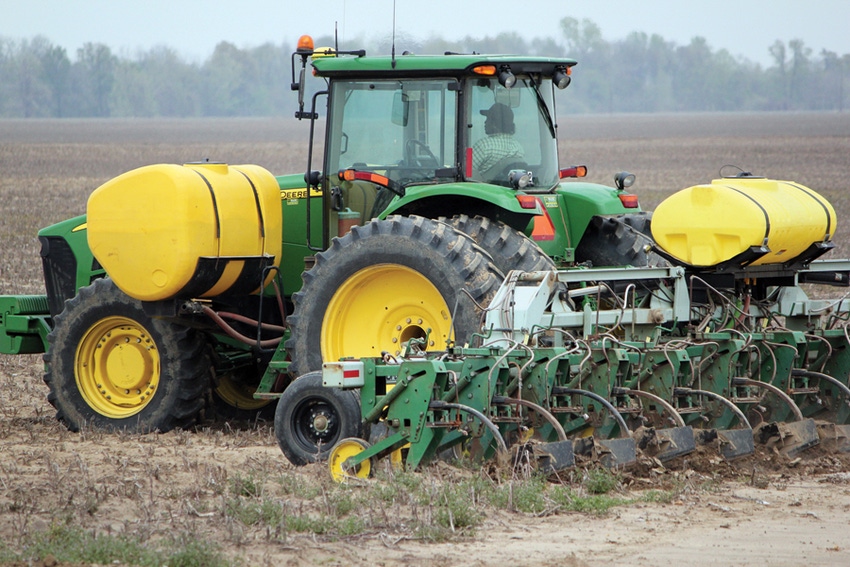January 31, 2013

The main two things I do for Riceland grower-members are answer questions from growers or their consultants and troubleshoot in the field. Most of the troubleshooting is the result of an off-target drift or something else that caused crop injury.
In previous years most of the drift complaints I have walked resulted from glyphosate. In 2012 I had very few glyphosate complaints, but I was run ragged looking at Newpath injury on conventional rice. The complaints ran the gamut — drift from an adjacent field, drift from long distances, temperature inversion issues, plane getting in the wrong field, farmer getting his own fields mixed up, contamination in the load, carryover.
This was totally out of character from previous years when the few complaints I walked were simply drift from adjacent fields. I do not know what the difference was last year, but let’s start today to keep it from happening again this year!
We are in a situation now where the number of Clearfield and conventional fields are similar. Last year there was a little more Clearfield, but the trend seems downward a bit. I believe more growers are heeding the message that they need better technology rotations on their farms. Therefore, in 2013 there is a 50-50 chance that an adjoining field or field close enough to be affected will be a conventional rice field.
Many of the “mess-ups” I walked last year could have been prevented with better communication and fewer assumptions. Growers and applicators need to do a much better job of communication. This also means communication between a grower and the neighbor’s applicator and vice versa.
One suggestion would be to have very clear maps of what all fields are planted to — for your neighbors with copies for their applicators if their applicators are different than yours. The University of Arkansas has done an excellent job with the “flag the technology” program, but you have to put the flags up. They do no good in the shop. I walked numerous fields that had been smoked last year and the flags were not put up until after the neighboring field was sprayed.
In several situations last year I heard, “He has always had that field, or farm, in Clearfield before!” Well he didn’t last year and those are ugly situations. Again, less assuming and more communication are in order. Several times I heard, “He could have told me.” Perhaps, but you should have asked. A lot of problems will be avoided with two-way communication.
Another communication issue I saw more than once last year resulted from the word “hybrid.” Either the applicator or the neighboring grower asked the neighbor what was in a field and the reply was “hybrid.” The assumption was hybrid meant Clearfield hybrid. Well, the field in question was planted to a conventional hybrid. It got smoked and everybody was mad.
Along with better communication and eliminating assumptions, I encourage every applicator to take a close look at the mixing and loading area and eliminate any potential source for mess-ups. The most common source is unlabeled containers. I looked at several situations last year where the applicator was in disbelief that something was obviously in the airplane that was not supposed to be. They were excellent applicators and no doubt being totally honest. However, the result in the field left no doubt a serious mistake had been made. We have a couple of months to get lined out to prevent a lot of train wrecks — please do.
About the Author(s)
You May Also Like




